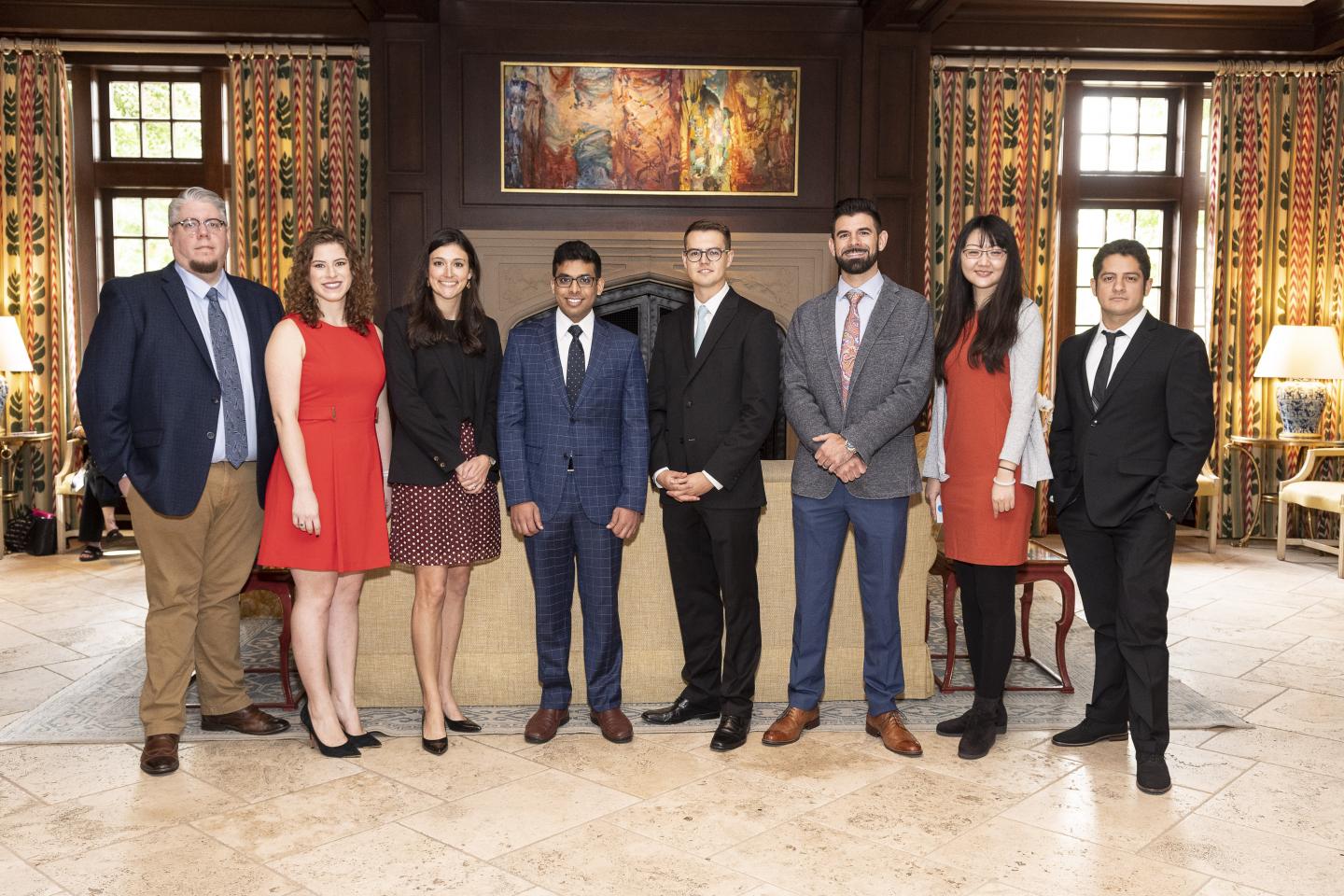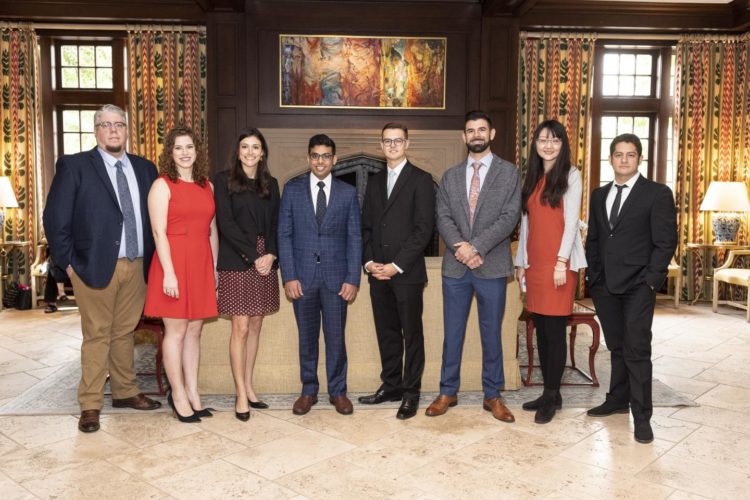
Credit: Jason Voinov
DALLAS (November 7, 2019) – The Center for BrainHealth, part of The University of Texas at Dallas, recently hosted the annual Friends of BrainHealth Scientist Selection Luncheon at the Dallas Country Club, where the following five scientists were awarded funds for their independently designed research studies:
Dinesh Sivakolundu, MD received the Jennifer and Peter Roberts Distinguished New Scientist Award for his research study, Identifying Brain-Vessel Health Biomarkers and Targeted Treatments to Improve Brain Performance in Healthy Aging and Dementia Disorders.
Kathryn West, PhD received the Linda and Joel Robuck Distinguished New Scientist Award for her research study, Validating Early Biomarkers of Slowing in Multiple Sclerosis.
Irene Zhao, MS received the Lyda Hill Philanthropies Distinguished New Scientist Award for her research study, Take Action Early: Training to Improve Cognition and Brain Signatures of Middle-Aged Working Adults.
Matthew Kmiecik, BS and Michael Lundie, MA received the Friends of BrainHealth Distinguished New Scientist Award for their research study, Structural and Functional Neural Correlates of Reasoning in Traumatic Brain Injury.
“Funding these young researchers allows them the incredible opportunity of leading their own pilot study and doing meaningful work to advance our understanding of brain health and performance. Thank you to the Friends of BrainHealth for providing significant support during a critical time in their early careers,” said Center for BrainHealth founder and chief director, Dr. Sandra Bond Chapman.
Eleven graduate students, doctoral candidates and postdoctoral fellows at the Center for BrainHealth competed for the awards. Other finalists included:
Mark Zuppichini, MA, a doctoral student in Dr. Bart Rypma’s lab, whose project would investigate yoga as an effective form of symptom management in those diagnosed with multiple sclerosis, specifically to improve depressive mood and memory impairment.
Shelly Gordon, MS and Aaron Tate, MA, whose multi-disciplinary project would determine if incorporating advanced face-tracking technology will improve participants’ ability to recognize nonverbal social cues by creating a series of emotion recognition tasks using face-tracking technology.
Under the leadership of co-chairs Brill Garrett and Roger Gault, the Friends of BrainHealth raised more than $318,000 this year. Since its inception in 2008, the Friends of BrainHealth have raised more than $2.89 million and have funded nearly 40 studies. For information on how to become a Friend, please visit brainhealth.utdallas.edu/donate/friends-of-brainhealth/
###
ABOUT THE CENTER FOR BRAINHEALTH®
The Center for BrainHealth®, part of The University of Texas at Dallas, is a research institute committed to enhancing, preserving and restoring brain health across the lifespan. Major research areas include the use of functional and structural neuroimaging techniques to better understand the neurobiology supporting cognition and emotion in health and disease. Its translational arm, the Brain Performance Institute, translates groundbreaking discoveries into practical application. By uncovering and delivering science-based innovations that enhance how people think, work and live, the Center and its Institute are empowering people of all ages to unlock their brain potential.
Media Contact
Stephanie Hoefken
[email protected]
972-883-3221
Original Source
http://brainhealth.





